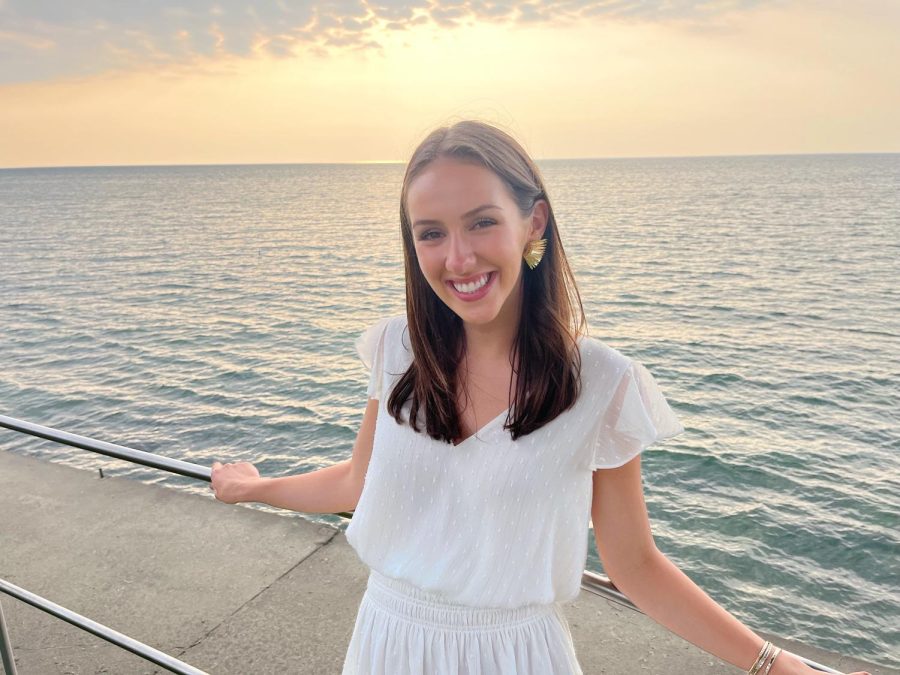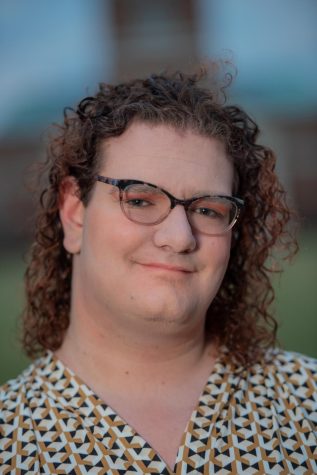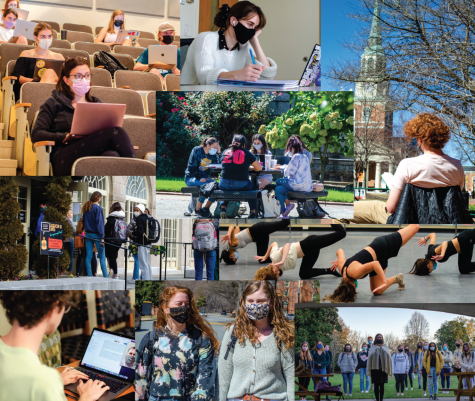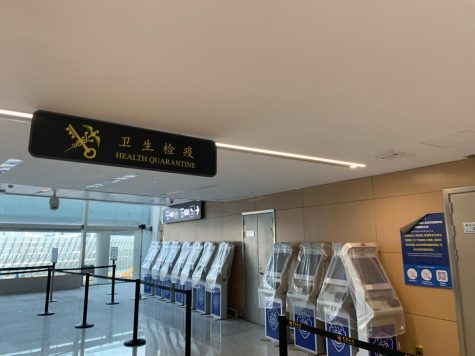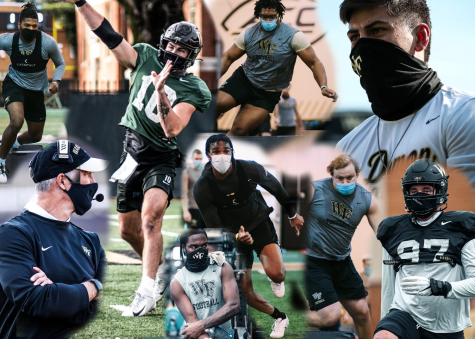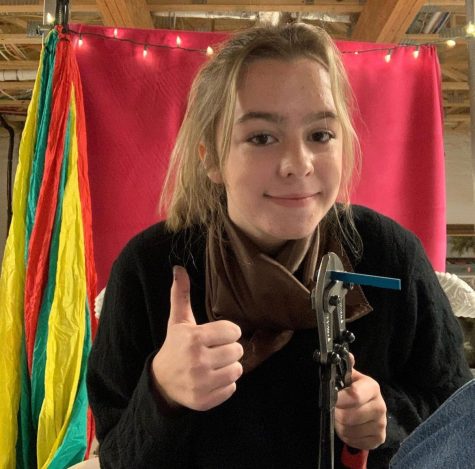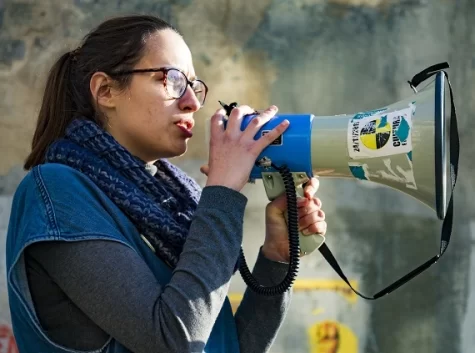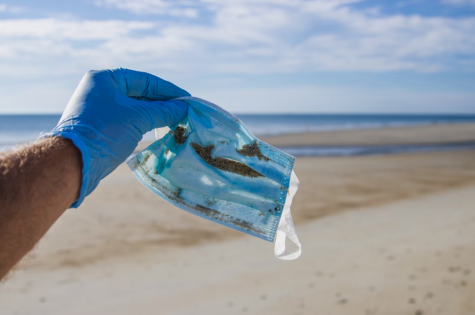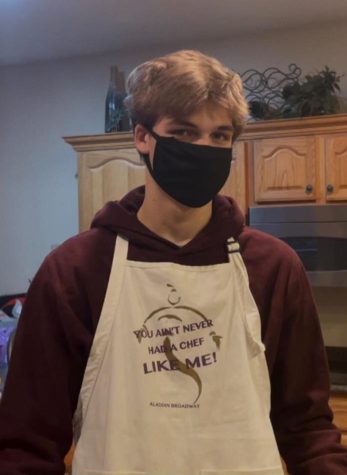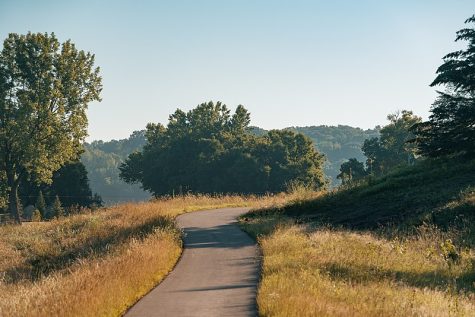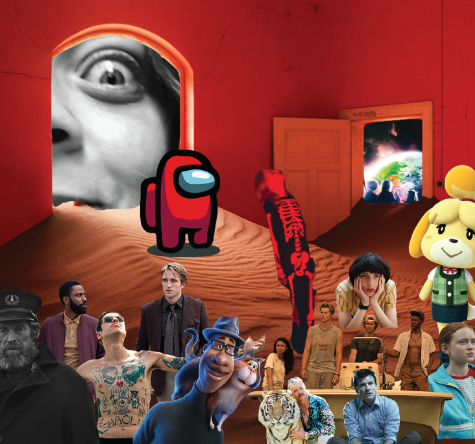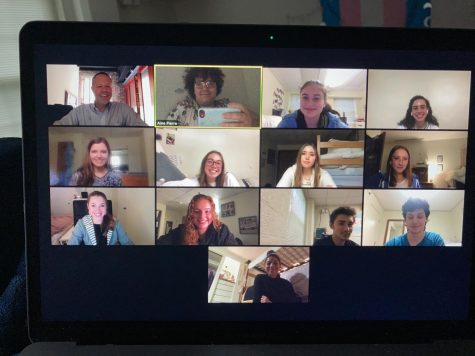Deacon Profile: Annie Russell
A Wake Forest sophomore shares her experience with Long COVID
March 16, 2023
Annie Russell is a sophomore from Belmont, N.C., who is majoring in Business and Enterprise Management (BEM) and minoring in Health Policy and Administration. She is also one of the approximately 20% of American adults who still displays symptoms of the COVID-19 virus long after her infection — a phenomenon called Long COVID-19 or Long COVID.
The Old Gold & Black spoke with Russell on March 14, 2023 — just more than two years after she says she first displayed symptoms of COVID. Her conversation with Online Managing Editor Aine Pierre, below, has been edited for brevity, clarity and AP Style.
Can you walk me through the first days of your COVID infection, when you found out, what was going on in your life, etc.?
It was the spring of my senior year of high school, and one afternoon, I noticed I had a bit of a cold. My grandfather was living with us at the time, so my family was very COVID conscious. So I stayed in my room for a couple hours, and then my mom brought me something to eat. I noticed that I couldn’t taste it, and then I tried to smell the candles in my room, and I couldn’t smell those, either. So I went and got a test and, of course, it came back positive.
I had to start quarantining in my room, staying home from school. This was also before the CDC had decided to reduce the length of quarantine to 10 days — I know it is further reduced now. So I did have to quarantine for a full 14 days in my room, which was a lot.
Tell me about when you first started noticing symptoms of Long COVID.
It began when I first lost my taste and smell. I know that was a super common symptom, especially during the height of COVID, although it doesn’t happen to everyone. Then, when my quarantine was over, the loss of taste and smell continued for several weeks, which turned into months.
Eventually, about two months after I first tested positive for COVID, it kind of morphed into something different. My taste and smell started to change — foods that I used to love started to taste bad. Random things would smell horrible. That was the worst part of it — it persisted for about six weeks, maybe a little bit longer. It started with just random things tasting bad, like peanut butter and chocolate. So I started eating lots of salads and pieces of toast, and then I remember coming home from school one day and making myself a salad that tasted bad. And I just broke down — I had almost nothing left that I liked to eat.
For a month or so, my diet was very limited. I basically ate cucumbers, carrots and sweet potatoes for about six weeks. I lost a lot of weight. As the symptoms faded, my tastes and smells did not come back, but I was just grateful that things weren’t tasting rotten anymore.
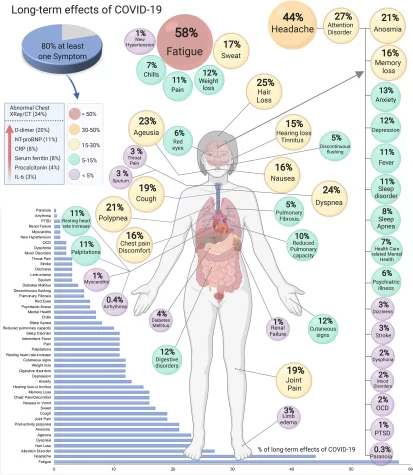
Would you say any symptoms continue today?
I still can’t really taste or smell. I feel like my smell has made less progress than my taste. The way I describe it is that I can taste spicy, sweet and sour, but I can’t really identify specific flavors. I still often smell something bad when no one else smells anything. I can’t really smell flowers. I can smell strong candles and strong perfumes when they’re very close to my nose, but I don’t really pick up on much else. So it’s definitely coming back very slowly, but at this point, it’s been more than two years. I’m not sure if the progress will speed up or what, but that’s kind of where I’m at right now.
What would you say have been some of the more profound effects of Long COVID on your life and in your work?
I think my diet [has been affected significantly], which is a big contributor to everyday life. When I first came to Wake Forest, I was still having trouble with things tasting bad and not enjoying the same foods I used to. Finding foods to eat at school was very difficult, and that was something that was hard to adjust to because I couldn’t necessarily go and prepare something that I knew suited my needs. Today, I feel like there aren’t any major effects just because I’ve learned how to navigate my limitations in that sense, but definitely as a freshman, there were some difficulties.
Tell me a little bit about your state of mind during that time.
Because of how long-term it had been by the time I came to Wake Forest, it was something that I had adjusted to. So I don’t think it had a huge weight on me. In the early days, and in those two months where I couldn’t eat anything, it was really difficult. It was just a new pattern that I had to adjust to — something that’s always hard. But navigating that low energy and not consuming much food was definitely difficult. I had a lot of support from my family, so that’s a privilege. It surprised me just how much it really impacted my life, and it was something that extended into parts of my life that I didn’t expect.
Earlier, you mentioned that your family’s already pretty COVID conscious. Did having the disease and experiencing the after-effects of it impact your worldview on COVID?
It definitely made me realize that COVID isn’t something that’s necessarily one-and-done. Everyone experiences it differently. Obviously, I had some long-term effects, which some people don’t — and others have worse Long COVID than what I experienced. But it did make me realize how individualized diseases are. People who had COVID two years ago are still dealing with it today, which is scary and not something that I had experienced with any illness before. So medically speaking, in a larger sense, it taught me a lot about how diseases work and how long-term they can be, which was very interesting, especially because I’m studying health policy.
Tell me a little bit more about studying health policy.
I want to pursue a career in the healthcare and medical field — something that connects with my interest in business. Healthcare is a huge part of our country, our world and our economy, so as someone with a business mind, it’s a stable field to go into. I also believe there’s a lot of potential for making change and having a positive contribution; it takes people on all sides of that field to make it a more positive system. The physicians and doctors can’t change it alone. It takes hospital administrators and policymakers, too. I’ve been interested in that throughout high school, and luckily, here at Wake Forest, I’m able to pursue that interest.
Would you say that your experience with COVID impacted your view on that future career? Tell me a bit more about some of those positive impacts that you’re hoping to bring about.
I think it did. Not just because of having COVID myself, but just because of some of the perspectives that I saw during the pandemic. Like I said, my grandfather lived with us, so I was able to see it from a perspective of how it affects different age groups and socioeconomic statuses. Luckily, we were able to have him come live with us. Some people can’t say the same — they couldn’t afford to have, or didn’t have space for grandparents and parents to move in.
Similarly, I saw how it impacted migrant communities and people without access to health care. My mom is very involved in a migrant assistant program in Charlotte. Throughout COVID, we would drive to local high schools, which had food banks for impoverished families to come and pick something up — especially if their parents were out of work.
I saw how COVID impacted people who typically hold blue-collar jobs, how they had to continue to work and sometimes that endangered them. I know someone who was a construction worker, and he had to continue to work because COVID impacted us in a way that we needed to convert buildings for other uses. He ended up getting COVID at work and was hospitalized for heart complications. He’s an asylum seeker from Honduras, so he doesn’t necessarily have his own medical coverage. So COVID definitely impacted my views of the healthcare system and motivated me to want to pursue this as a career. I think it wasn’t only because of my personal experience with COVID but because of the things that I was able to witness, as well.
Is there anything that you feel it’d be important for the world to know about what you went through or what you’ve seen?
I don’t think there’s any pressing information from what I went through just because I had support systems to be able to properly navigate it. So as much as it was a hindrance to my everyday life, it wasn’t something that impaired me severely. In terms of what I’ve seen, I think it’s just important for people to remember that COVID and large illnesses are some things that impact us differently. We’re so far removed from it now — or many of us are, at least. And when we’re approaching how to handle issues like this on a national and global level, it’s important to remember those perspectives that we don’t often see ourselves, especially in terms of setting up systems to help one another.


